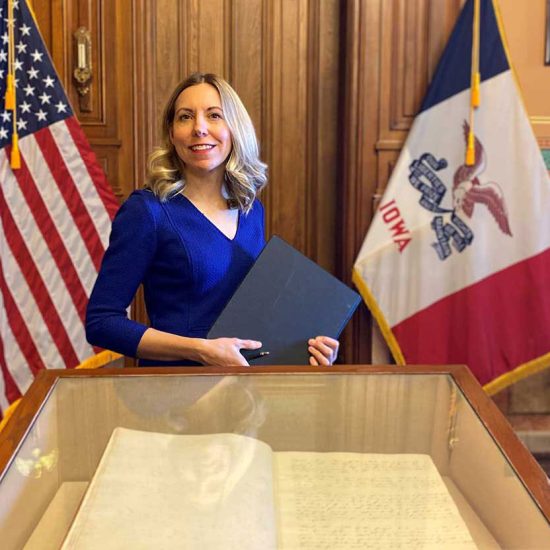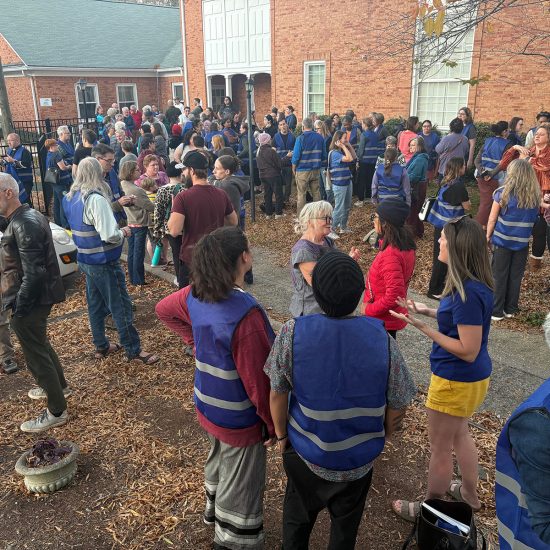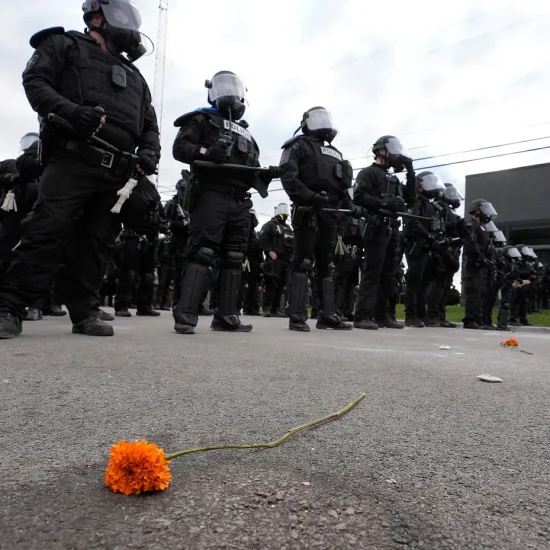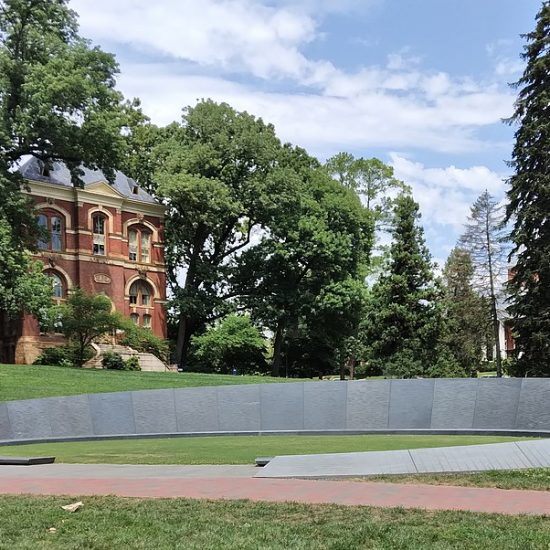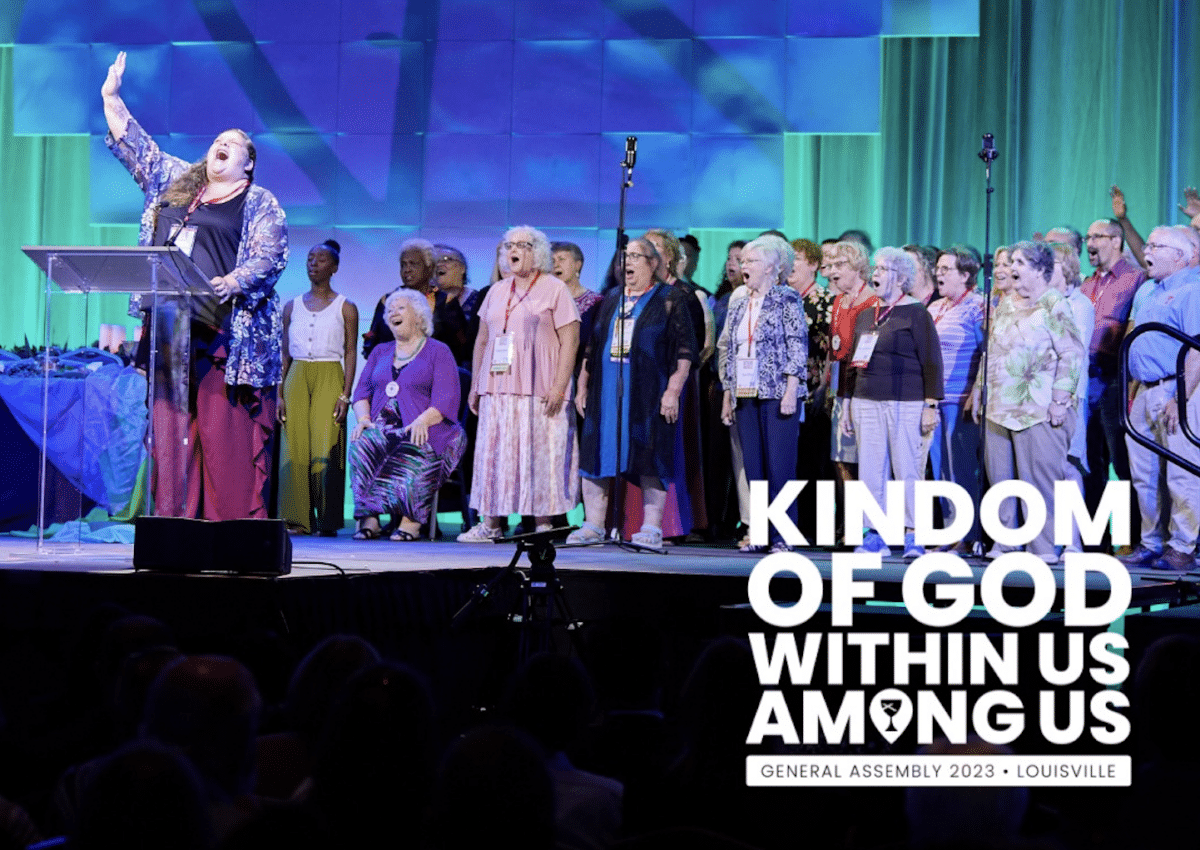
The Christian Church (Disciples of Christ) in the United States and Canada held their biennial General Assembly from July 29th to August 2nd in Louisville, KY with over 3,000 members in attendance. The theme of the Assembly itself, “Kindom of God: Within Us, Among Us,” indicated an attempt to not do business as usual. Embracing the spelling “Kin-dom” instead of “Kingdom,” a spelling first suggested by theologian Ada Maria Isasi-Diaz, demonstrated the growing commitment within the Disciples of Christ to social justice and inclusion as key Gospel mandates. Over the course of four days, those gathered to represent the wider church confirmed their support of this perspective.
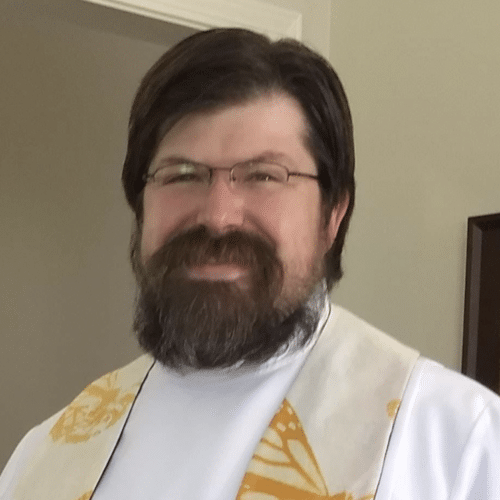
Tim Trussell-Smith
The Assembly, like most large church gatherings, includes worship, business sessions, and workshops along with many special events and informal gatherings. Disciples minister, Jeff Gill, writing at Knapsack, describes it as the “family gathering of our religious tradition.” Gill’s series of articles on General Assembly and, particularly, on the major structural changes that were voted on at this Assembly, which I will describe in brief a bit later, are valuable reading on the topic. Because of the unique structure of the Disciples, the General Assembly can influence but not set policy for the local congregations, or for the 31 Regions — each operates independently but in a covenant of mutual support and cooperation with the other “manifestations” of the church.
However, when thousands of members gather, there is a sense that the church, as a whole, is speaking. And last week, the church spoke.
The Disciples seemed to announce last week that they were ready to stand in unity around issues of social justice that have long been contentious and only seem to grow more contentious by the day in our culture. As part of the business sessions of the General Assembly, Disciples passed several significant resolutions.
The first of these called on the church to oppose Christian Nationalism as a “direct contradiction to the gospel Jesus preached.” The resolution named that Christian Nationalism has been “present in varying degrees throughout modern history” but “has taken on more aggressive and overt form” recently in North America. Finally, the resolution declared that The Christian Church “denounces Christian Nationalism in all its forms as a distortion of the Christian faith.” It further called on local congregations and other expressions of the church to commit to resisting Christian Nationalism within the church and in their own contexts.
The Disciples also continued their commitments in several areas: passing resolutions relating to food waste and other environmental justice issues, supporting continued commitment to faith-based investing, and creating a “Truth and Healing Council” to discern opportunities for reparations and reconciliation between the church and Indigenous Peoples. Each of these builds on prior resolutions by the church.

The third night of worship at the 2023 General Assembly. Courtesy photo
Another resolution, “Compelled to Witness: Answering the Cry of Our Palestinian Siblings” took the step of naming Israeli policies towards Palestinians as fitting “the international legal definition of the crime of apartheid.” The resolution called on the church to advocate for the equal dignity and human rights “of all people living in Palestine and Israel” and also rejected antisemitism and anti-Islam bias and Christian Zionism.
Finally, an emergency resolution, “Invitation to Oppose Anti-Trans Legislation and Affirm the Dignity of Transgender and Gender-Diverse People” was brought to the floor of the Assembly with Rev. Ari Colin Douglas of Portsmouth United Church in Portland, Oregon taking leadership in presenting the resolution. Rev. Douglas spoke to their own experience as a non-binary clergyperson in the church and the journey from having to hide parts of themselves while serving towards living and serving as their full self. As comments were made, other attendees staged a die-in to witness to the very real threat to the lives of transgender and gender-diverse persons due to the growing tide of legislation aimed at them in many states — including both Kentucky, where the Assembly was gathered, and Indiana, where the church’s headquarters are located. After extended comment time to allow more voices to be heard in support of the resolution, it passed unanimously.
Less dramatic than these resolutions, but perhaps even more profound, was the fact that many (and this author has the sense it was most) of the denominational leaders providing their reports about general ministries of the church were women or people of color, and, in several instances, both. That included Rev. Terri Hord Owens, the leader of the general church and the first African-American woman to lead a major American denomination — a position she has held since 2017 and to which she was reelected at this Assembly. The Christian Church is seeking equity in leadership and beginning to achieve it in meaningful ways. Although, as Rev. Owens acknowledged in her sermon during the final worship service, her work has been more difficult because she is a black woman.
This truth-telling by the leadership of the church and the vocal support of the gathered representatives for such issues was felt by those in attendance. Disciples pastor Danny Gulden, of Geist Christian Church in Indianapolis, reflected after the Assembly that “[c]hurches, clergy, and all those serving the church know they are not alone in working for good in their communities. They are not alone in the issues they face.”
And the stances the Disciples took were noticed by others. George Mason, Pastor Emeritus of Wilshire Baptist wrote, “Although the Disciples tend to fly under the radar, they have set the bar and leveled a challenge to every denomination. This is a big thing and a good thing.”
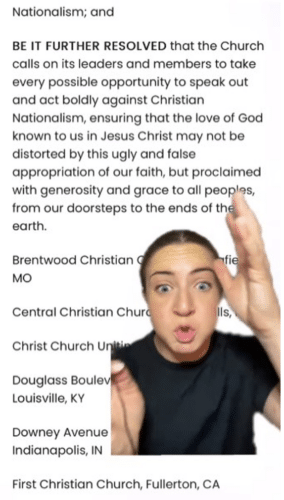
Screengrab from the TikTok account “EndChristianNationalism”
The TikTok account “EndChristianNationalism” was effusive in their praise for the Disciples resolution. As you can see from the image, their mind was blown by the resolution: “Just imagine if every denomination could do this!”
Rifat Kassis, General Director of Kairos Palestine (a Christian Palestinian advocacy group), wrote of the resolution regarding the injustices affecting his community, “We appreciate the Disciples for their remarkable role in defending justice and for continuing the historic work of standing in solidarity with our Palestinian people, actively challenging oppression, and striving for justice and equality in Palestine/Israel.”
The question remains how that will affect the life of the church on the local congregational level. While the General Assembly has consistently supported progressive stances on LGBTQ+ inclusion and affirmation, racial justice, and progressive stances on everything from abortion to economic justice to support for Palestine, these stances often do not reflect the whole of the church. Many pastors and lay leaders return from each General Assembly to congregations and regions that do not support the same understanding, or don’t support it as strongly.
However, this seems to be sorting out to some degree. Churches and individuals who are just not comfortable with a missional focus on justice have either departed over the past several decades or come to terms with that being the overall direction of the general church. This is perhaps illustrated by the real lack of contention about the various resolutions. This has been bemoaned in the past and still causes concern for many in a church that prides itself on allowing for diversity of opinion and belief. A key example is the previously cited unanimous passage of the resolution opposing anti-trans legislation. That doesn’t mean there is lock-step agreement about gender diversity within the Disciples, but there is a shared commitment to acknowledging the pain of the marginalized and responding to it. Two decades of centering anti-racism within the denomination may have helped pave the way towards this shared commitment to hear and respond to suffering in our world.
Yet, with all those bold social stands, for the Disciples themselves, the most significant resolution may have been an amendment that altered the structure of the general church in crucial ways. The changes will take effect after the 2025 General Assembly. The high points of this amendment to the church’s Design are that General Assembly will gather every year, instead of every two years, and that every congregation will have an equal number of representatives to those assemblies. However, two-thirds of the annual meetings will be virtual gatherings only. Disciples will only gather for this great, yet perhaps prohibitively expensive, family reunion every three years after the 2025 Assembly. The amendment also shrinks the size of several governing bodies of the church in an effort to be more flexible and nimble, as well as more fiscally manageable.
Overall, the Disciples may be a church that is waking up and truly embracing its core identity of being “a movement for wholeness in a fragmented world.” Rev. Owens called the church to live into that identity by calling on Disciples to “be the church we say we are. It is in being who we say we are that we actively bear witness to God’s limitless love for all.”
The overall sense of my time at the General Assembly was that there is renewed passion and hope, a fresh movement of the Holy Spirit, within the Christian Church (Disciples of Christ). The institutional challenges facing mainline churches remain very real, but the focus seems to have shifted to living into the reality of what is possible with God’s help rather than remembering what has been lost.
Tim Trussell-Smith is an ordained minister in the Christian Church (Disciples of Christ). He has been the senior minister of First Christian Church in Valparaiso, IN since 2021 after serving churches in Georgia, Massachusetts, California, and Alabama over the course of 17 years in ministry as both a lay and ordained minister. He has been involved in youth and camp ministry for most of that time. He is a graduate of Mercer University and Andover Newton (now part of Yale Divinity School).

